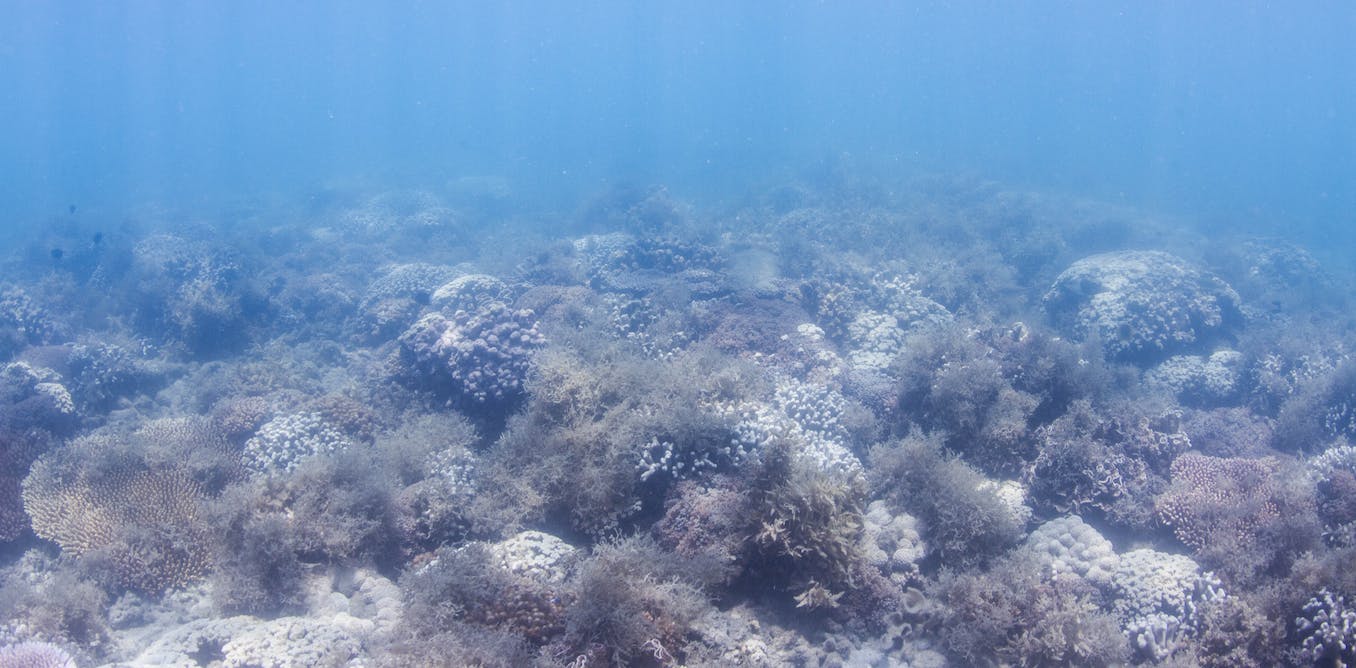Our new study, published today in the journal Environmental Science and Technology, found that previously unquantified groundwater inputs are the largest source of new nutrients to the reef.
According to one estimate, there has been a fourfold increase in riverine nutrient input to the Great Barrier Reef since pre-industrial times.
The most recent nutrient budget for the Great Barrier Reef found river-derived nutrient inputs can account for only a small proportion of the nutrients necessary to support the abundant life in the reef.
Our results suggest the need for a strategic shift in management approaches aimed at safeguarding the Great Barrier Reef from the effects of excess nutrients.
While we need to reduce the impact of climate change on this fragile ecosystem, we also need to adjust our policies to manage nutrient inputs and safeguard the Great Barrier Reef for generations to come.



https://www.theguardian.com/environment/2023/oct/09/groundwater-a-significant-source-of-pollution-on-great-barrier-reef-study-shows
Scientists say they have discovered large flows of pollution are reaching the Great Barrier Reef after soaking into underground water, a finding that could have implications for policymakers focused on cutting pollution from river catchments.
Controlling pollution running on to the reef from farms has been a major focus for governments and agenciess, with scientists saying improving water quality will give corals a better chance of recovering from bleaching events caused by global heating.
Recovery of Great Barrier Reef stalls as scientists point to bleaching, disease and starfish attacks.
The study did not identify the source of the pollution but rather the route it took to the reef.
Prof Damien Maher, a co-author of the research also from Southern Cross University, said: "Groundwater discharge accounted for approximately one-third of new nitrogen and two-thirds of phosphorus inputs, indicating that nearly twice the amount of nitrogen enters the reef from groundwater compared to river waters."
State and federal governments have pledged hundreds of millions of dollars to improve water quality in the Great Barrier Reef.
The federal environment minister, Tanya Plibersek, said: "This is welcome research - the better we understand the threats to the Great Barrier Reef, the more we can do to protect and restore it."